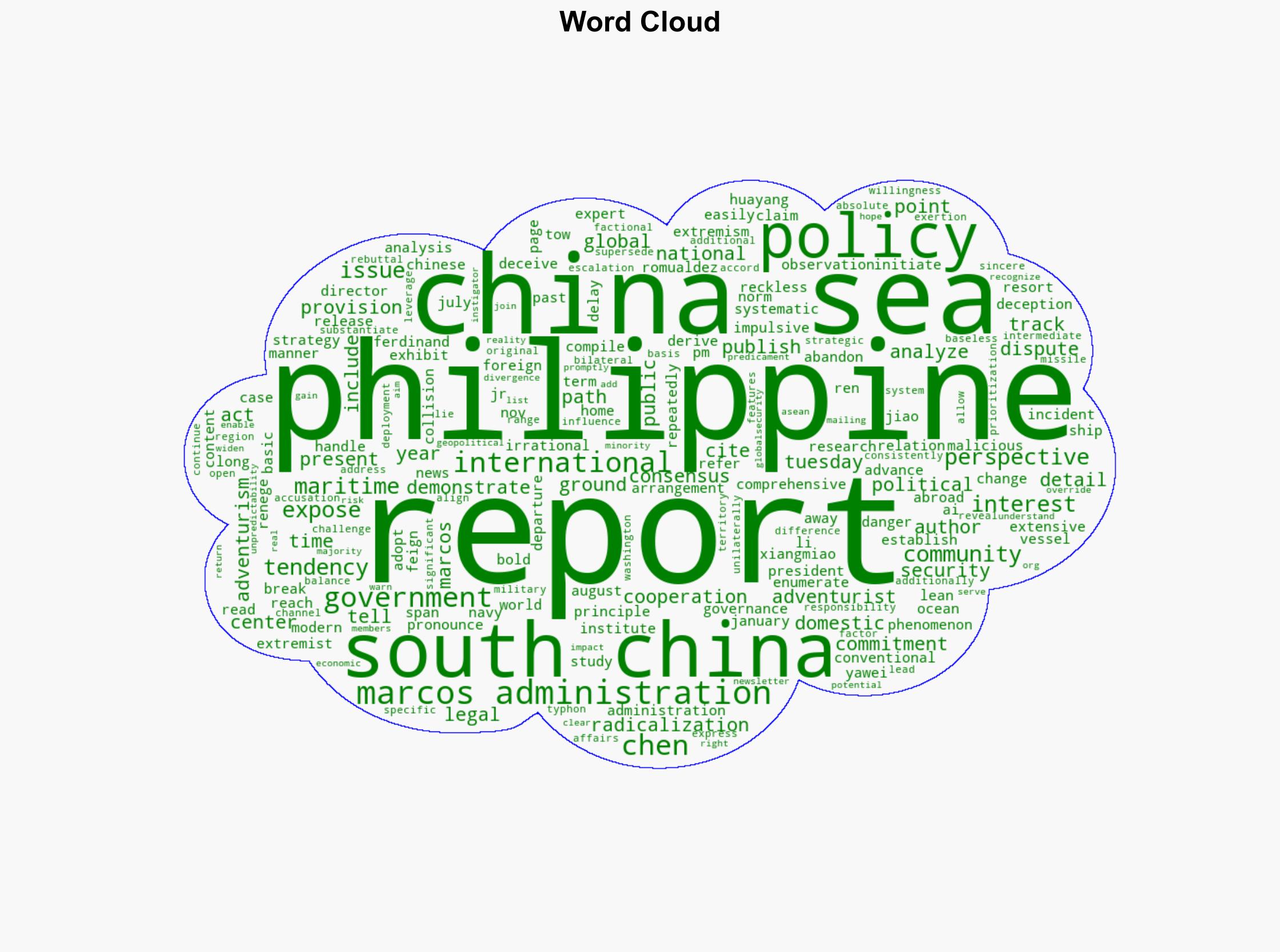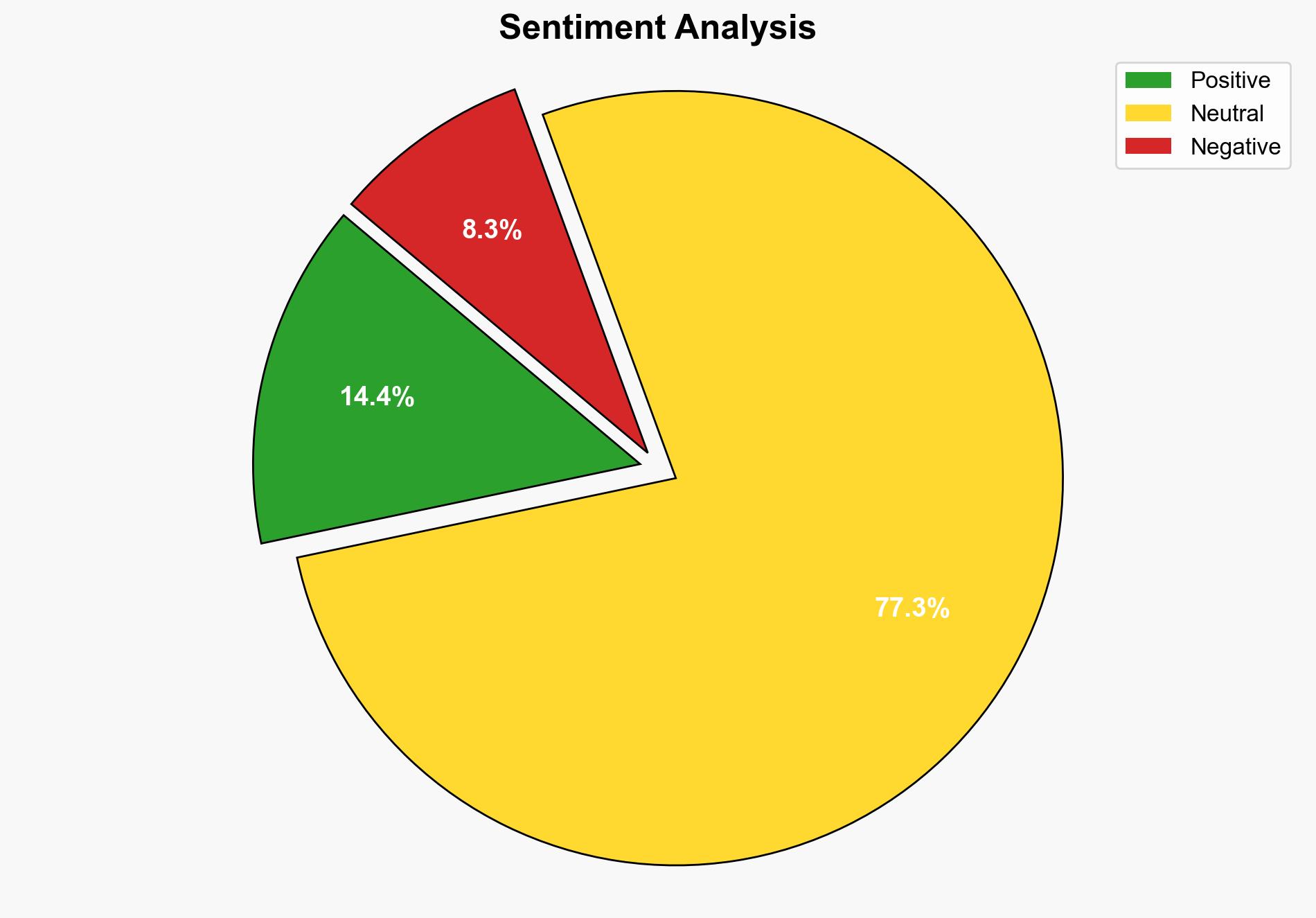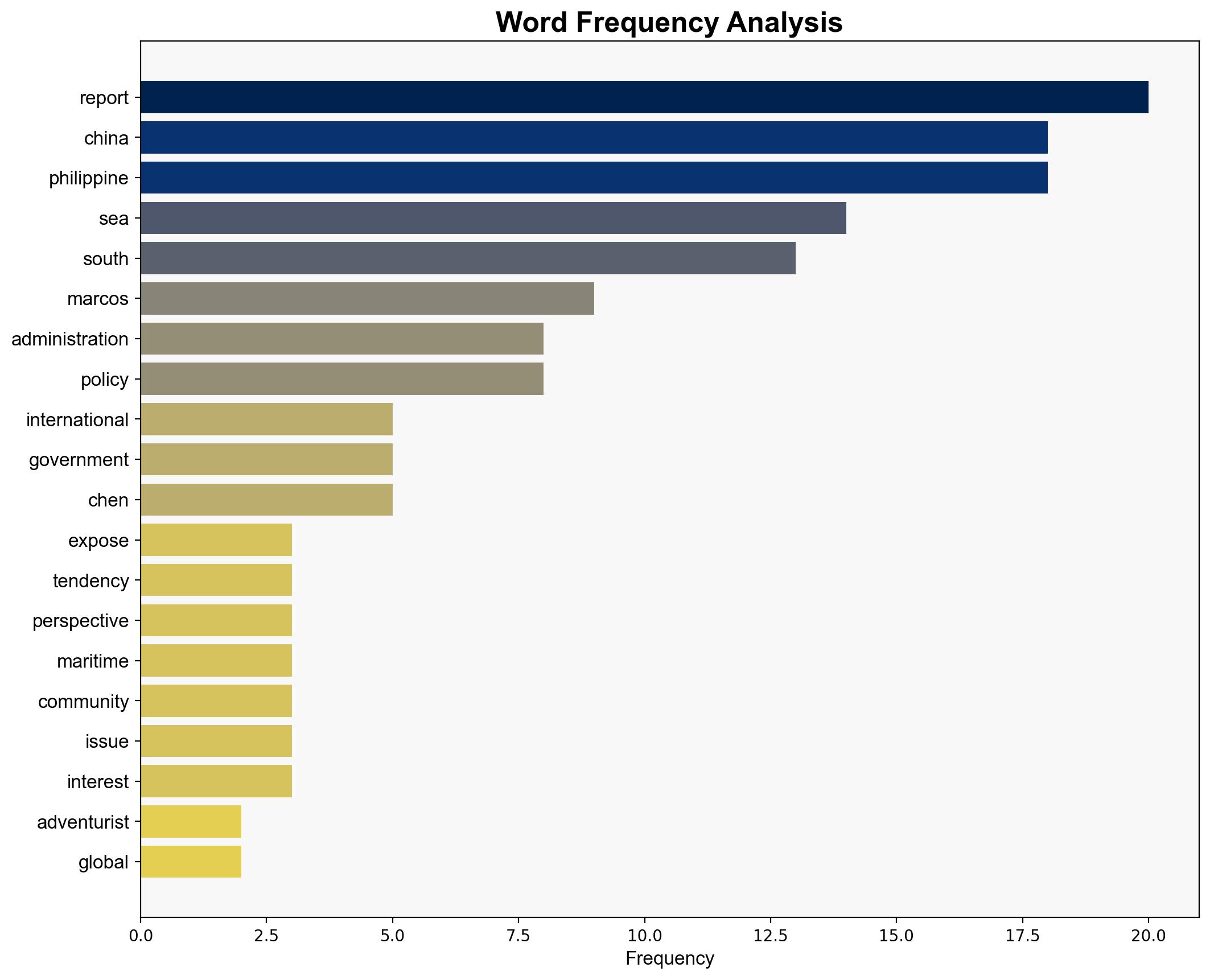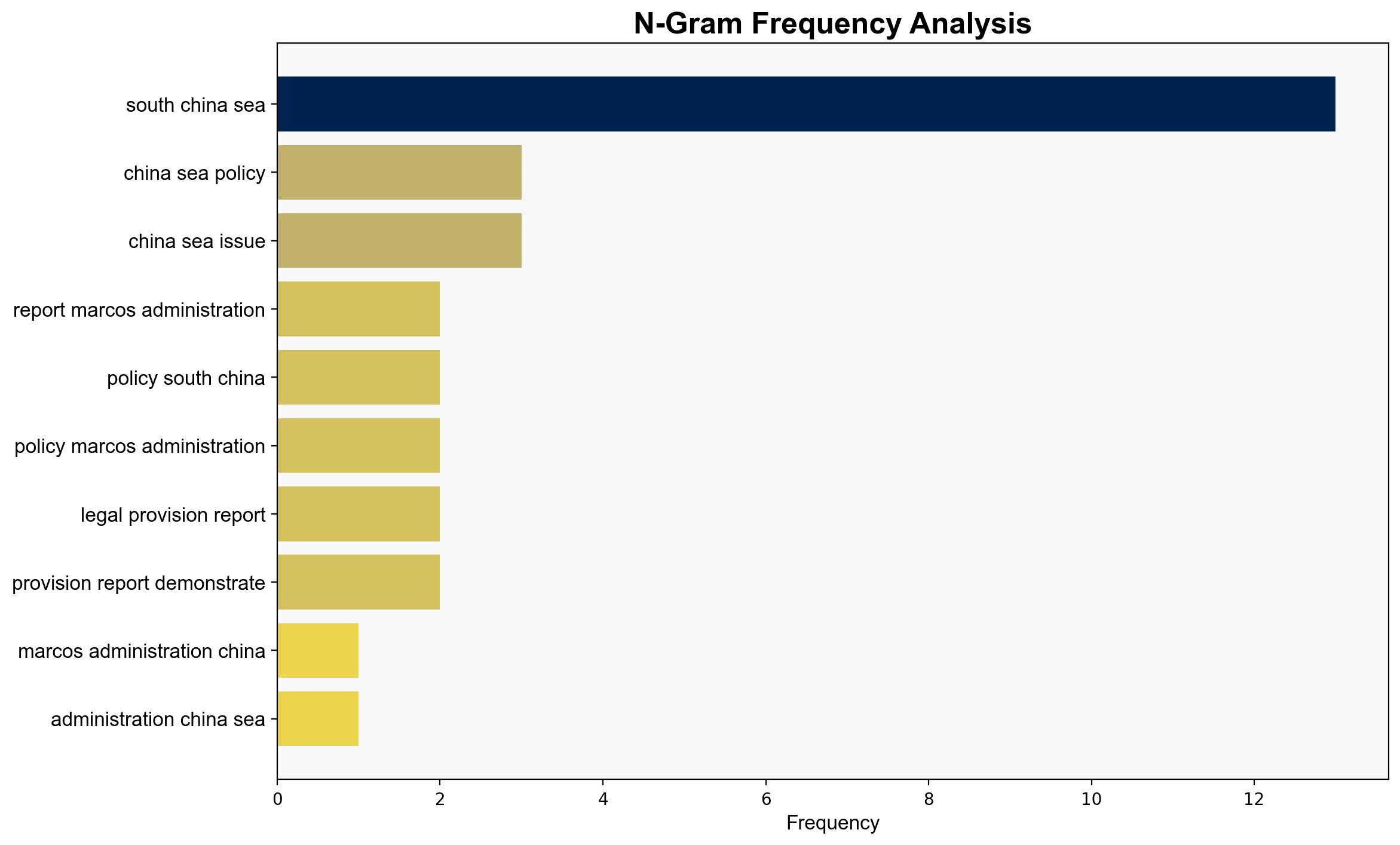Report on Marcos administration’s SChina Sea policy exposes its ‘extremist adventurist’ tendencies – Globalsecurity.org
Published on: 2025-11-05
Intelligence Report: Marcos Administration’s South China Sea Policy Exposes ‘Extremist Adventurist’ Tendencies – Globalsecurity.org
1. BLUF (Bottom Line Up Front)
The report suggests that the Marcos administration’s South China Sea policy is characterized by a shift towards extremism and adventurism, potentially destabilizing regional security. The most supported hypothesis is that the administration’s actions are a strategic maneuver to assert sovereignty and counter external influences, particularly from China. Confidence in this assessment is moderate due to potential biases in the source. Recommended action includes diplomatic engagement to clarify intentions and reduce tensions.
2. Competing Hypotheses
1. **Hypothesis A**: The Marcos administration is intentionally adopting an aggressive stance to assert Philippine sovereignty and counterbalance China’s influence in the South China Sea. This approach is a calculated strategy to gain leverage in international negotiations and strengthen national security.
2. **Hypothesis B**: The administration’s policy is primarily driven by domestic political pressures and factional interests, leading to impulsive and reckless actions that prioritize short-term political gains over long-term national interests.
Using ACH 2.0, Hypothesis A is better supported by the systematic nature of the policy changes and the strategic alignment with broader regional security dynamics. Hypothesis B lacks consistent evidence of domestic political motivations being the primary driver.
3. Key Assumptions and Red Flags
– **Assumptions**: Hypothesis A assumes that the Marcos administration has a coherent long-term strategy. Hypothesis B assumes that domestic politics significantly influence foreign policy decisions.
– **Red Flags**: The report’s source may exhibit bias, as it is authored by a Chinese expert, potentially skewing the interpretation towards China’s perspective. The absence of Philippine government statements in the report is a notable gap.
4. Implications and Strategic Risks
The Marcos administration’s policy could lead to increased geopolitical tensions, affecting regional stability and economic cooperation. Potential escalation scenarios include military confrontations or economic sanctions. The policy’s unpredictability may deter foreign investment and strain alliances.
5. Recommendations and Outlook
- Engage in diplomatic dialogues with both China and regional allies to clarify intentions and reduce misunderstandings.
- Enhance intelligence-sharing mechanisms to monitor developments and anticipate potential escalations.
- Scenario Projections:
- Best: Successful diplomatic resolutions lead to stabilized relations and economic growth.
- Worst: Escalation into military conflict disrupts regional security and economic stability.
- Most Likely: Continued tensions with periodic diplomatic engagements to manage disputes.
6. Key Individuals and Entities
– Ferdinand Romualdez Marcos Jr.
– Chen Xiangmiao
– Li Yawei
7. Thematic Tags
national security threats, regional focus, geopolitical strategy, maritime security





